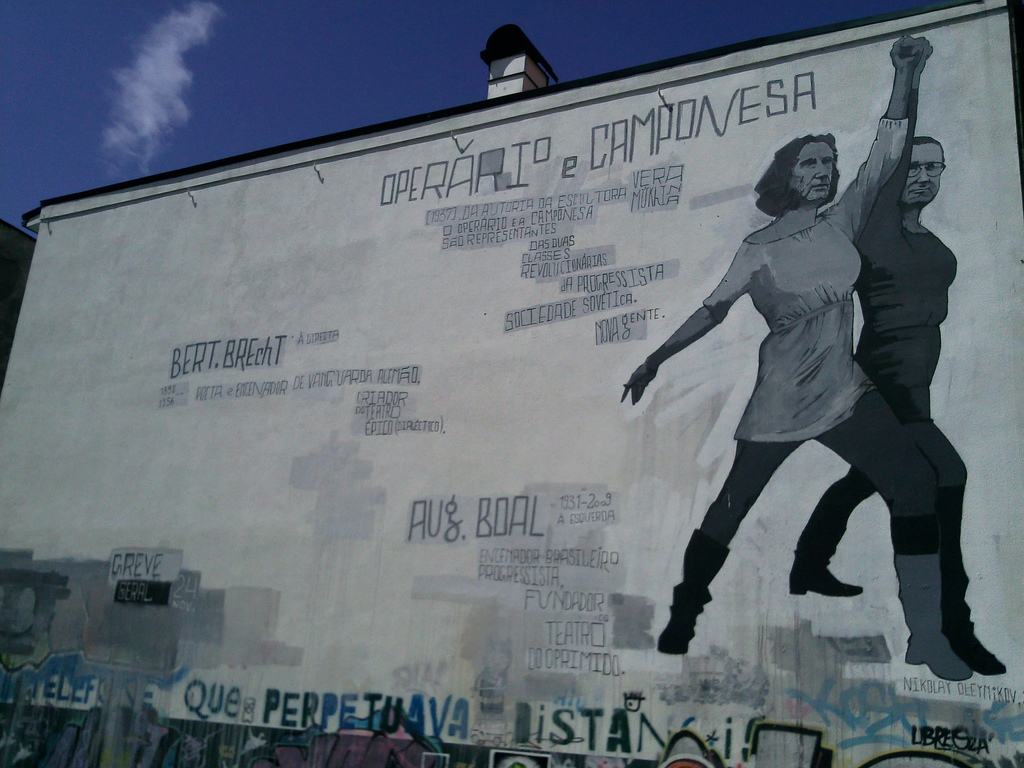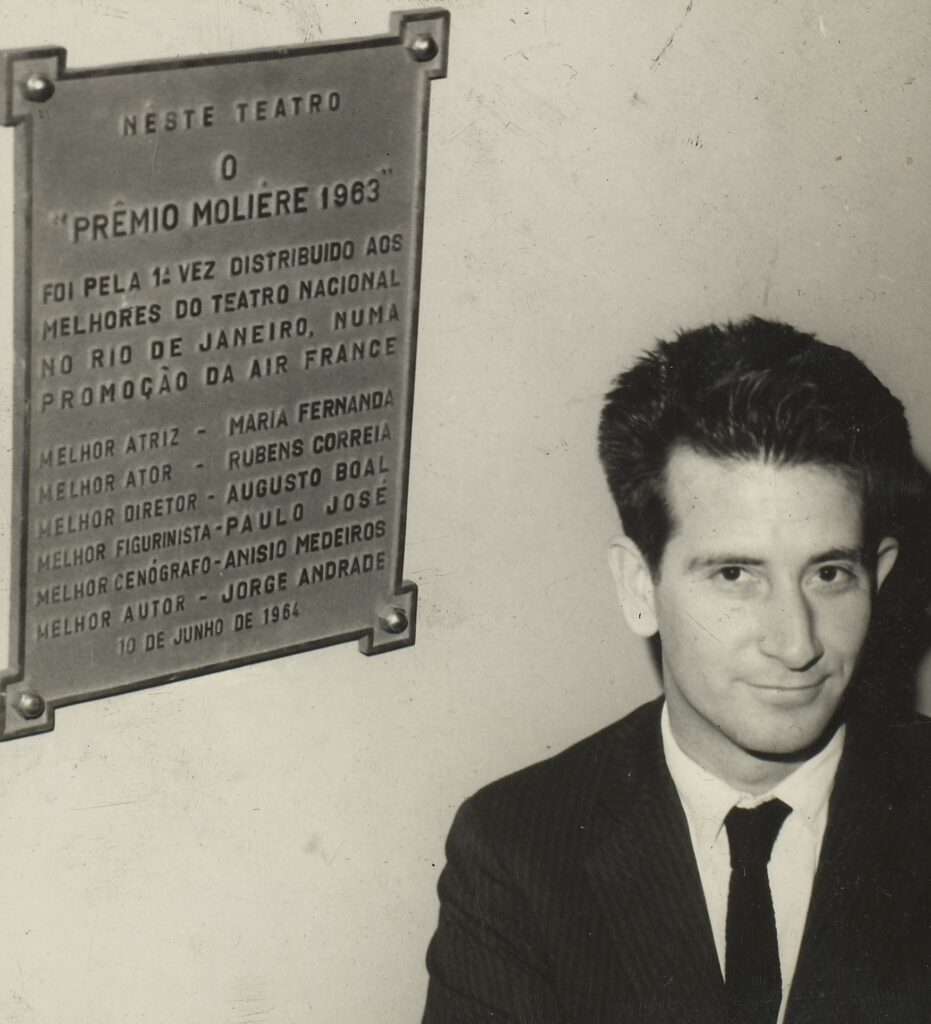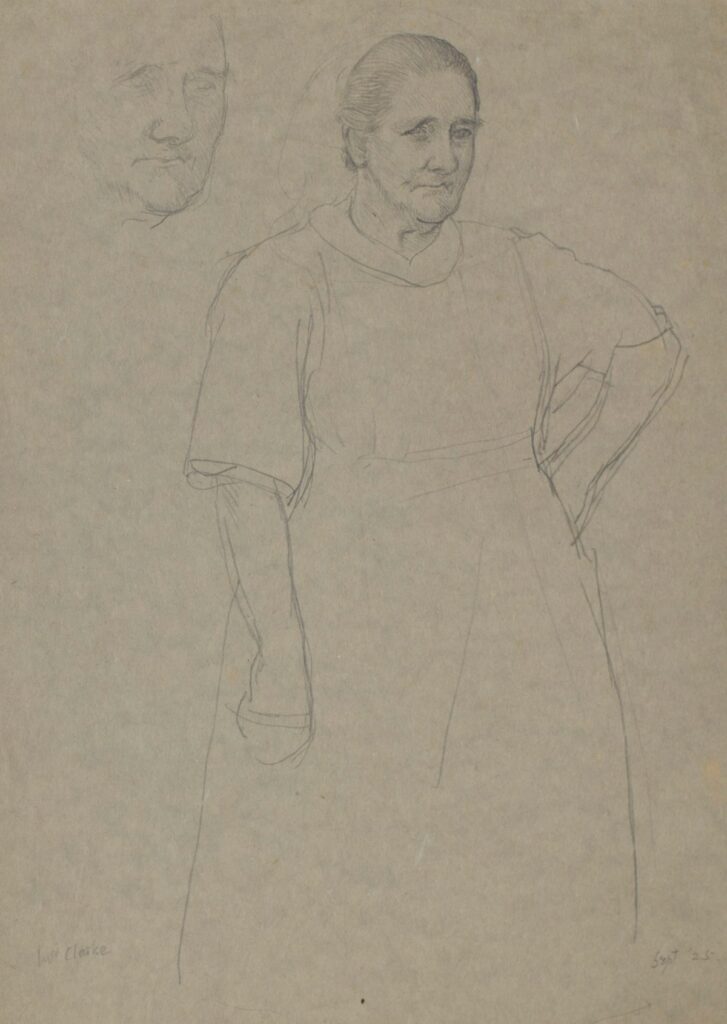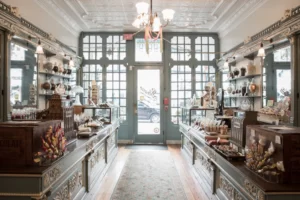Augusto Boal: A Profile of a Revolutionist

Performance art.
The most ephemeral type of art in which everything is questioned by the means of anything.
In the domain of theatre and engaged art, artists explore the worlds around them, create worlds inside them and live within them; and there are a few names that should be mentioned. If for any reason, then to just satisfy the urge to enumerate the apostles of this peculiarly elusive artform. Theatre makers, playwrights, and performers, such as Bertolt Brecht, Samuel Beckett, Vsevolod Meyerhold, Jerzy Grotowski, Marina Abramović, Pina Bausch, are well-known legends – but when thinking about less Euro-centric engaged art makers, one cannot leave out a clear revolutionist – Augusto Boal.
This notorious Brazilian theatre director, actor, and political activist was led by a strong vision of proving to the ‘unaware ones’ – so to most people – the power that different levels of oppression hold over us. For him, oppression was almost as much a societal matter as it was also a private one. The one which we carry in our minds.
In the period ranging from the 1950s to even the 1980s, Brazil was going through several social revolutions and uprisings. It was a dynamic time in which movements such as Brazilianization, the Manifest of the Pioneers of Education of Brazil, and many others took place. Keen on bettering the dreadful situation in his native country, Brazil, Boal travelled throughout the country and subsequentially the rest of South America and Europe to elevate the oppressed in their authoritarian regimes. He developed and opened various ideological spaces where the political culture of the place can meet the cultural identity of the people. In this marriage of politics and art, he explored social problems through numerous concepts. Theatre practices such as drama therapy, image theatre, invisible theatre, legislative theatre, and forum theatre all formed under his leadership and helped in reshaping society. For him, the crucial point of departure was the mutual involvement of everybody. To bring about a change, everyone should participate and build themselves and their communities with the tools that art had to offer.
Augusto Boal lived his life with conviction and determination to fight the oppression and be the change that he so vehemently advocated for. He was indeed a man of action, a man of acting.

The Skit: The Workshop
Yesterday, I had a conversation with a cleaning lady in a small-town theatre. We were on the stage facing one another. Yes, inside the magic of the black box. Her cardigan, made from worn-out wool and synthetics, was covering her saggy breasts just enough so that the nipples were covered by its rim. She said that she got tired of wearing bras – “whats’ the point really? Am I supposed to wear it for the toilet seat to admire when I am scrubbing off scales and crap? Oh, right like anyone is going to care. Nobody does, but I do. After a ten-hour shift, at the end of the day, I just want to rip it off. Too much pain for something so unnecessary. Plus, it’s expensive. Too much money for something so evil. I had two bras for twenty years. I kept re-sewing them and restitching them, but for what? So that I can be in pain again the next day? Basta!”– she waves her hand. We were now talking for a few minutes; she was telling me about her everyday life in the favelas and I was listening to her. I, no stranger to that, was telling her about my everyday life in the grey cubicle where I work. Staving off my own backlashes of life in the comunidades while listening to her, I got sick to my stomach. My forehead started to get wet with sweat. The lights from the stage ceiling suddenly started shining too bright, and I kind of hated them. They made me dizzy, and I could smell myself sweating.
We must all do theatre – to find out who we are, and to discover who we could become.
Augusto Boal
It was an acting assignment. We were supposed to first spend around fifteen minutes telling each other about our everyday lives and then, in the second part of the assignment, we had to decide which part of each partner’s day or life is the most oppressive to them and enact it as if we were the other. Even reach a sort of catharsis, maybe. Afterwards, we had to talk about it and then go back to where we all came from. A group of ten or twelve normal people goes back to their lives, or their life theatre as one could call it. I sometimes don’t even know what the difference is.
The assignment is nasty and excruciating. I knew it wouldn’t be easy, nor that I will like it always, but this was too much for me to handle in any sort of proper way. Augusto says there is no proper way to handle this – there is just your way. The pain has its own way – but I disagree. I like it when I am a bit more disciplined with these things, when I am more in control of myself and the situation. Also, sometimes I just don’t want to say these things out loud. I mean Augusto said it himself: “Sometimes oppression is so violent that you can’t even talk about it.” So, I don’t. I keep my pain to myself, and I try to enact hers. It’s difficult though. I feel that I can’t express myself through her eyes; her experience of life differs too much in comparison to mine. I empathize, but I know I can’t fully grasp it.
.
.
.
She is crying now. And not in that ‘these-are-the-tears-of-my-chatarsis’ way. Shit. I, or my ‘performance’, made her cry. From all the horrendous stories that she told me about her life and day, I got so overwhelmed in the end, that I decided to not choose anything specific. I don’t want to show to others how she had another episode of taking the merda from her drunk marido. Fuck that. Or her cleaning the toilet stalls in this very theatre and enduring the pain of kneeling due to her osteoporosis and damaged knees while cleaning. And how that position and pain reminds her of when she was a menina and had to kneel on corn kernels with her naked knees as a form of punishment. The sting of the kernels slowly digging themselves into her stretched out skin at the knees and then the inevitable bloody itching as the newest wound is slowly healing. I had the same; I hated those yellow bastards. I just focused on the red thread that goes through all of them. The feeling(s). Uncertainty, fear, loneliness, anger, frustration, sadness, and the royalty of them all – numbness. Because it’s too much, and enough is enough. I know that feeling. She knows it. Everybody knows it. It’s the last stage before this whole ordeal of a cycle starts over again. After a life spent in that prison of emotions, you just start being done. Numbness. Somehow both a safe and brittle haven.
I just showed a very mundane act. I was her. I was coming home from a long and tiring day at work and from tedious commuting. I walked up the flimsy and at some places, hollow wooden stairs to my casa. I opened the door, my breathing heavy from walking up the stairs and honestly, just from the whole day. I put down my tote bag with a single mamão papaya inside – breakfast for tomorrow. I listen for the heavy steps, but hear none. Good. He is not home yet, so I fall into a chair and close my eyes. That day nothing horrible bad happened, I was just tired. Some images, memories go through my mind and I am hot in my eyes again. Tears are a release, but I am too tired to fully weep, so I just sit in silence and appreciate the honest loneliness. Better than the one I feel when he is around. I stroke my own wrist, where he grabbed my hand really tight the other day – it wasn’t a big fight – but it still left a bruise.
To resist, it is not enough to say No – it is necessary to desire!
Augusto Boal

The thing is, I did not anticipate any sort of reaction from anybody in the crowd as they were watching. It’s a slow and boring atuação – nothing big. And I did not expect to actually cry myself, but I did. Those few honest tears really showed up and at the same moment, I was glad I managed to pull off this acting trick. Sad, because I was actually sad for her and me, and also dead because part of me was trying to subdue myself so that I have more space to let her character in. I mean, look – I have no idea what I am doing. Just trying something out. Like, I started going to this whole workshop in the first place to see if there is anything else left inside of me other than numbness. Apparently, there is. Sometimes. And this simple act made her cry. At first, I didn’t notice because my eyes were still closed and I was trying to be in the moment. Then I heard her from her seat in the audience. I open my eyes and she was starting to weep. Others were either looking at her with empathy or just out of mild curiosity. I was alone on the stage; I didn’t know what to do now. Should I come to her and awkwardly hug her? Do I just carry on with my piece?
After a few dumb seconds, I get up from the chair.
I look at her, and she looks at me with her teary and soulful eyes from her seat. I am sweating again, but for a different reason. This old and tired lady is looking at me like I just opened her whole world and understood every single thing there is to understand about her. Like I am her salvador. Or something else. She looks like she feels appreciated and understood. I feel like I am intruding and don’t like the forming connection that is initiated by her and her false belief that I understand her. Because I don’t and honestly, don’t want to understand her fully. I did not come here to be a saint. I came for my own brittle spirit.
Suddenly, we are locked in with that stare and I just want to go home to my place. She opens her mouth to say something, but I intercept her and say: ‘Don’t.’ I get off the stage, put the chair back and I hurriedly get to the doors. I want to exit this place as soon as possible while my cheeks are burning and probably getting redder by the second. At the foot of the door, I still hear her say: obrigado.
I care, but I don’t.
Enough of engaging with art for today.
When does a session of The Theatre of the Oppressed end? Never — since the objective is not to close a cycle, to generate a catharsis, or to end a development. On the contrary, its objective is to encourage autonomous activity, to set a process in motion, to stimulate transformative creativity, to change spectators into protagonists.
Augusto Boal
Design by Giulia Cristofoli
Do you want to double-check the information you just received? Here are the sources the writer used.
Improvising Character: Jazz, the Actor, and Protocols of Improvisation text by Marshall Soules
Theatre of the Oppressed Workshops with Women: An Interview with Augusto Boal by Augusto Boal, Jan Cohen-Cruz and Mady Schutzman
A life in Theatre by Adrian Jackson


